In this article we’re going to take a look at 18 of the best release management tools in 2024.
Having a reliable release management tool is vital if you’re constantly releasing new updates for your software.
And with customer expectations increasing every second, who isn’t doing this?!
When it comes to release management tools, ideally you want the power to facilitate increased release velocity while reducing the risk of failure.
What is release management?
Release management is the process of managing your software releases through every stage of the build, from planning to deployment.
Today’s software platforms are increasingly complex, making new software releases more frequent – and also more challenging – than ever before.
A great release management tool can help you schedule the tasks required to execute regular software releases, and in most cases can also help you automate some of those tasks.
18 Best release management tools in 2024
1. Project.co

Project.co is a modular project management software that allows users to manage anything, which of course includes release management.
You can use our 5-star rated (on Capterra) tool to plot tasks that will help you manage each stage of your release management cycle, discuss issues and bugs with your team, and track time spent – so you know how long it takes each release to get from planning to deployment.
– It’s customisable to your needs.
– Easy to use and free to get started.
– Easily plot and assign tasks to keep your project on track.
2. Azure DevOps

Azure DevOps is part of the Microsoft Azure suite of cloud computing services. This tool helps to bring together your developers, project managers, and contributors to develop new software releases.
Azure DevOps covers the entire application lifecycle, from planning, through to testing, building and deployment. Plus, the reporting capabilities and project management tools can help your teams to plan smarter and collaborate better.
– It’s part of Microsoft Azure.
– Access to over 1,000 extensions.
– Access to agile planning tools.
3. GitLab
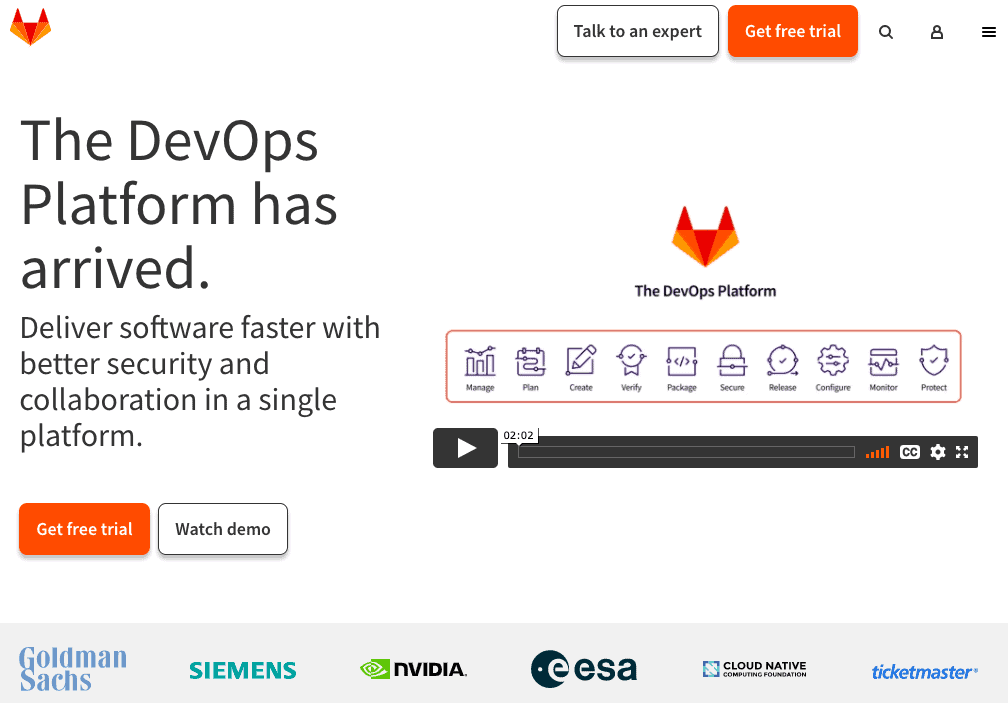
GitLab is a complete DevOps platform that allows teams to develop, secure, and operate software all from a single application.
From initial project planning to source code management, monitoring, and security – GitLab’s got you covered.
With GitLab you can identify blockers and immediately address them, and automate security and compliance, so you can put all of your focus into delivering better software, faster.
– Trusted by some of the world’s biggest companies.
– Reduced risk and cost.
– Manage everything from a single app.
4. BMC
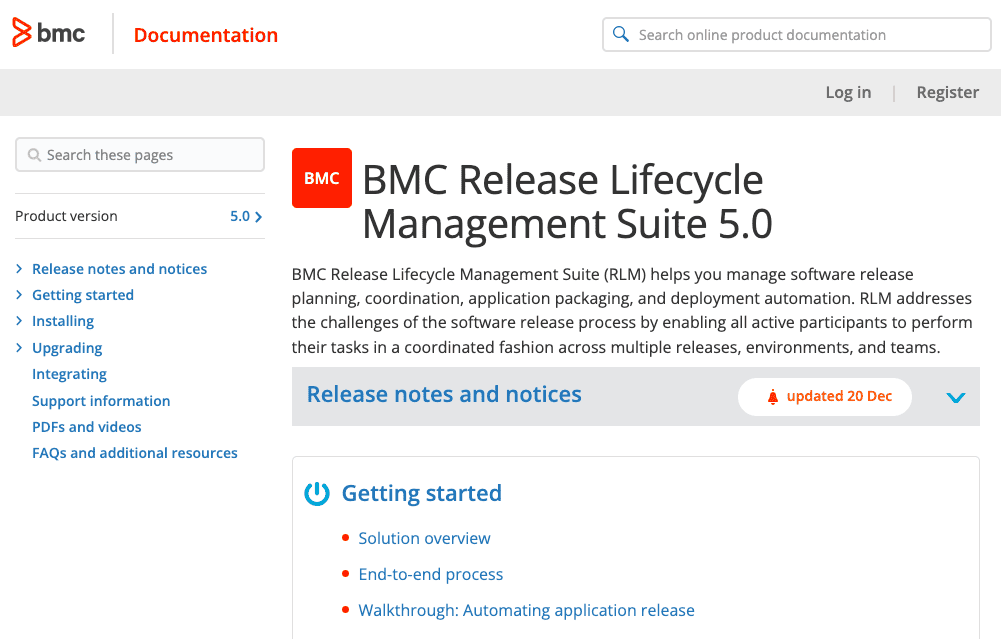
BMC Release Lifecycle Management Suite does exactly what it says on the tin! It helps you to manage software release planning, release coordination, and deployment.
The tool helps you to automate the development and deployment lifecycle so you can deploy releases quicker, at a lower cost, and with fewer errors.
BMC helps organisations to obtain a single source of truth for all releases with a centralised interface, pinpoint bottlenecks, and ensure consistency in release planning and execution.
– Trusted by some of the world’s biggest companies.
– Reduced risk and cost.
– Manage everything from a single app.
5. Nolio
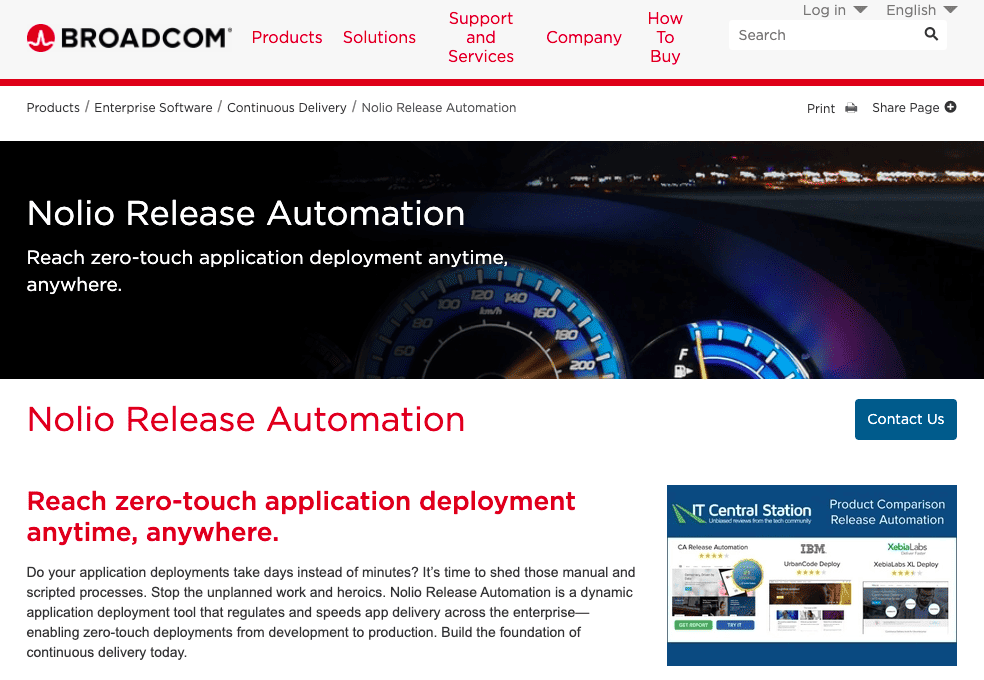
If you’re sick of your application deployments taking days instead of minutes, you need Nolio. Nolio Release Automation is a dynamic tool that enables zero-touch deployments anytime, anywhere.
Nolio can regulate and speed up app delivery across your entire organisation, stopping unplanned work and helping you to shed manual processes.
Nolio boasts automatic, standardised, and reusable deployment for continuous delivery.
– Zero-touch deployments.
– Up to 20x faster release velocity.
– Increased visibility, consistency, and reliability.
6. Clarive
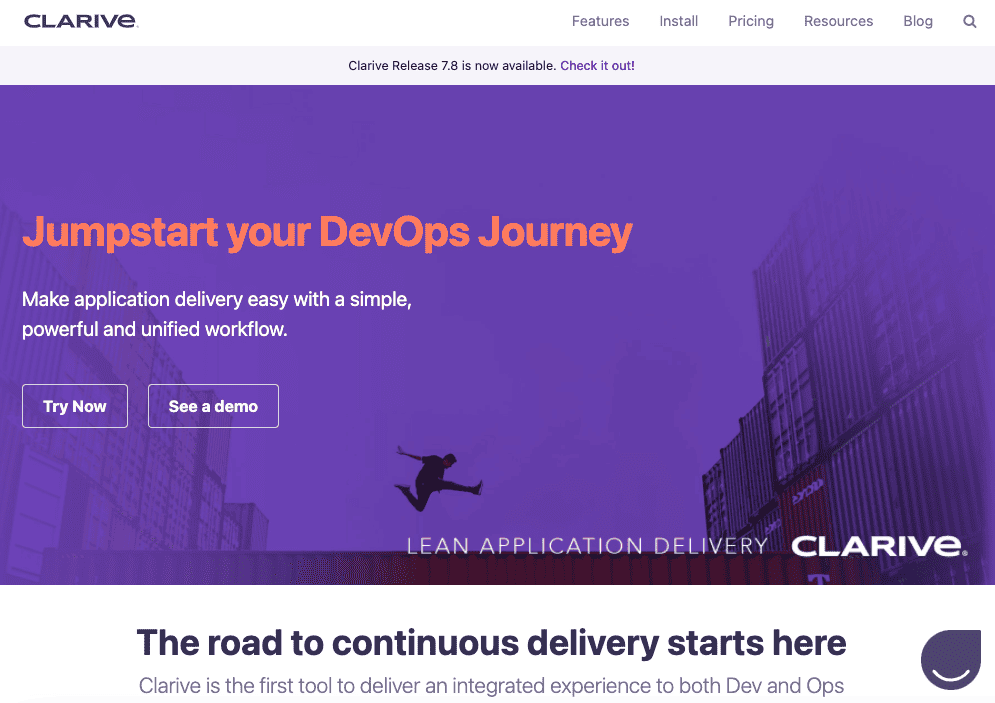
According to their website, Clarive is the first tool to deliver an integrated experience to both Dev and Ops teams. This allows the tool to simplify, automate, and speed up the release process.
The simple and intuitive interface gives you complete visibility and control over the entire DevOps lifecycle, so you can plan, change, track, and deploy your applications with ease.
Plus, the fully customisable controls, scheduling features, and automation allow you to build, test, and release at scale.
– Create an integrated experience.
– Select from “teamplates” that suit your needs.
– Write code in your language.
7. Ansible
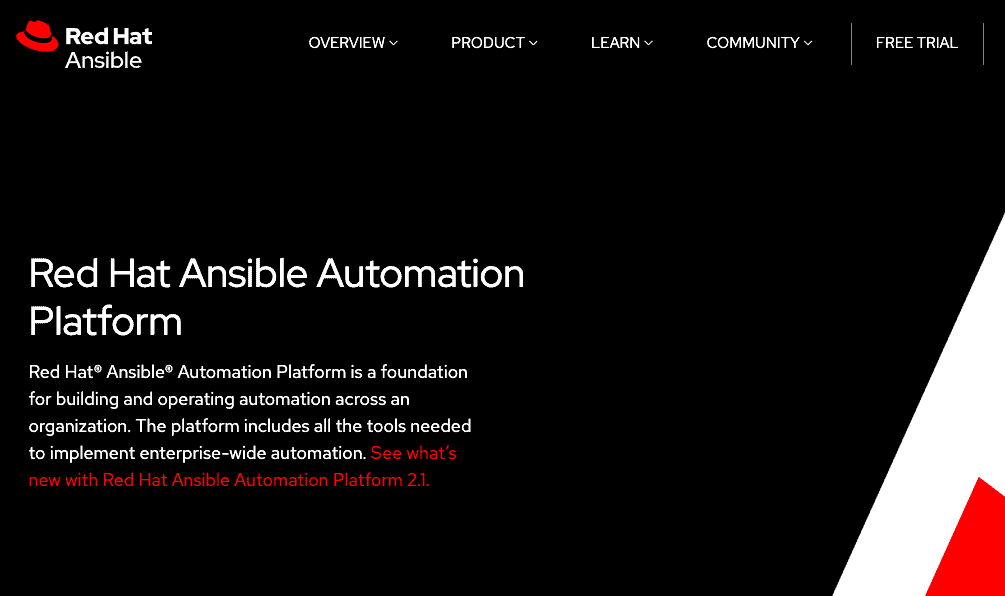
Ansible is an open source release management tool used for software provisioning, configuration management, and application deployment. According to the website, Ansible is “the simplest way to automate IT”.
Ansible has been designed for multi-tier deployments, so it’s able to model how all of your IT infrastructure systems inter-relate (rather than just managing one system at a time).
Plus, it allows you to describe your automation tasks in plain English and uses no agents or additional custom security infrastructure, so it’s easy to deploy.
– It uses a simple language (YAML).
– It’s easy to deploy.
– Integrates with any vendor.
8. (R)?ex
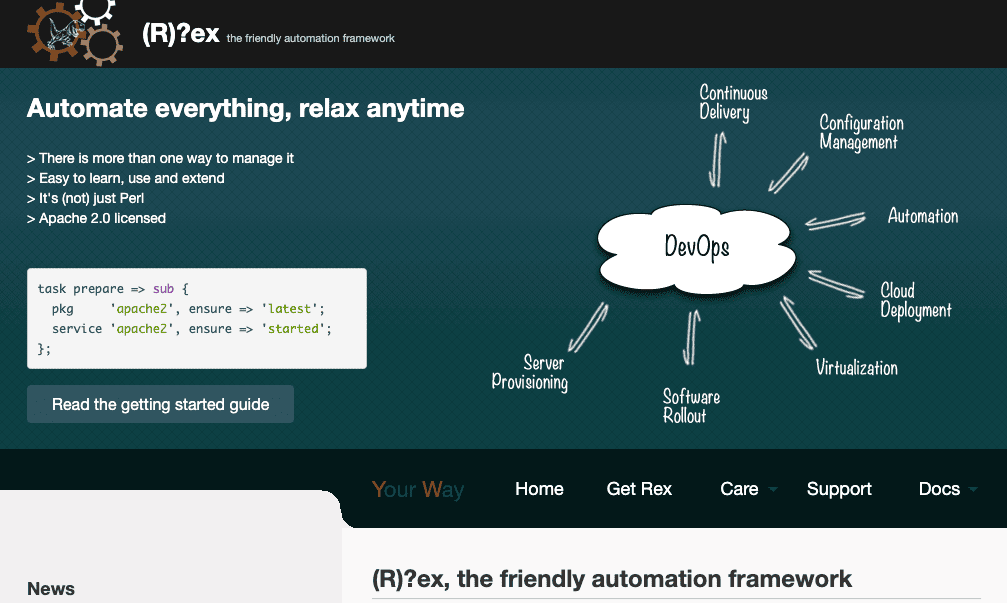
(R)?ex (or simply “Rex”) is an acronym for “Remote Execution”. This open source tool puts you in charge and gives you the power to automate…anything.
Rex is a remote execution, configuration management and software deployment tool that combines Perl and Secure Shell, so it’s easy to use and easy to integrate with your current environment.
– It’s Apache 2.0 licensed.
– It can be used locally or remotely.
– It uses Perl programming language.
9. UrbanCode
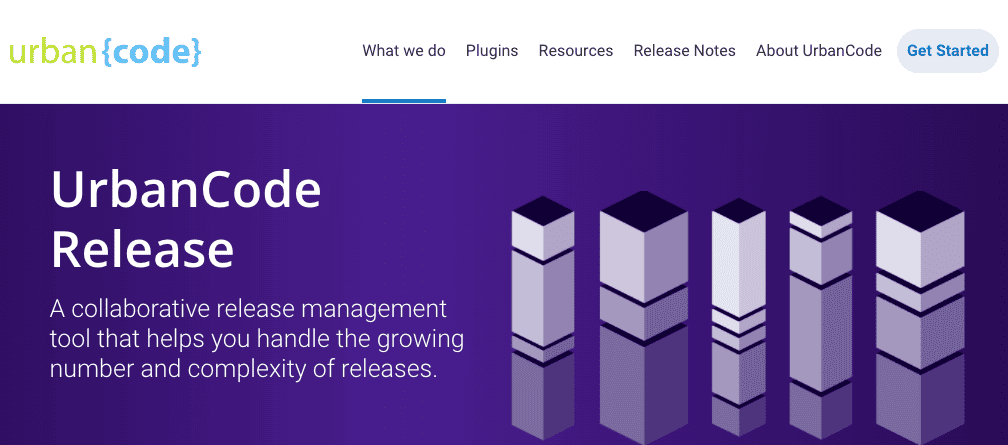
UrbanCode is a collaborative release management tool that claims to help users handle a growing number of releases while reducing errors and increasing agility.
With UrbanCode you can plan, execute and track your releases through every stage of the delivery lifecycle, and use templates and automatic rules to mitigate risk.
Another benefit UrbanCode can boast is increased visibility. Organisations can see which versions of an app are in which environment at any given time so they can monitor the impact that each new release has.
– Increased visibility.
– It’s a collaborative, web-based tool.
– Access to templates and automatic rules.
10. Octopus
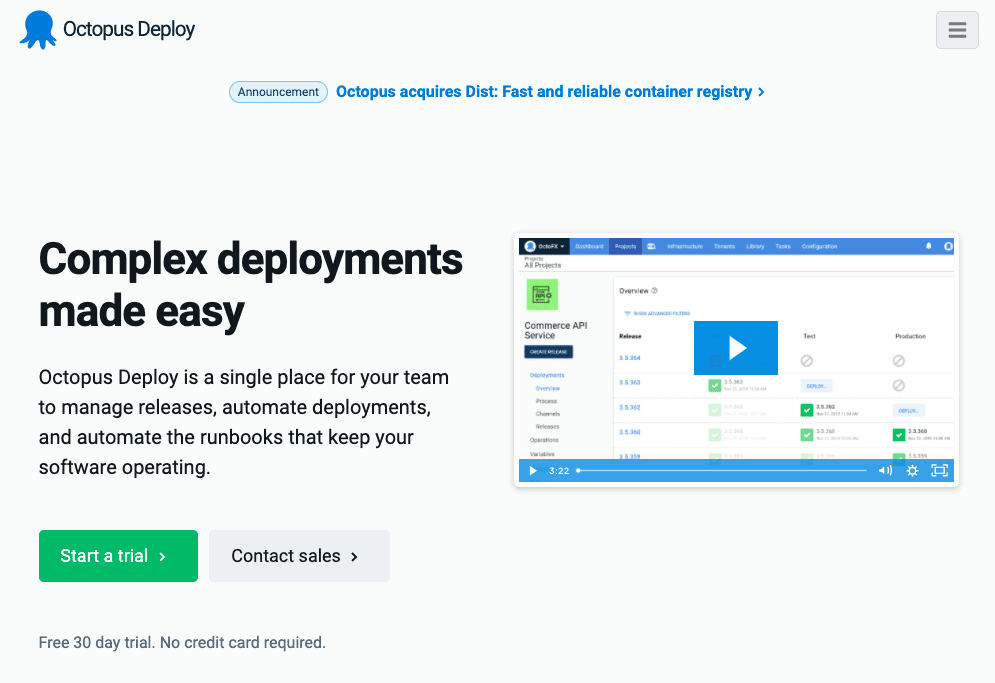
Octopus makes complex deployments easy. From one place, your team can manage releases, automate deployments, and automate operations tasks (like routine maintenance and incident recovery).
Octopus is all about bringing your developers and operations team under one roof so they can benefit from a single source of truth.
This release management tool is trusted by over 235,000 DevOps engineers and software teams.
– A single source of truth.
– Trusted by thousands of clients.
– Easy integration.
11. Plutora
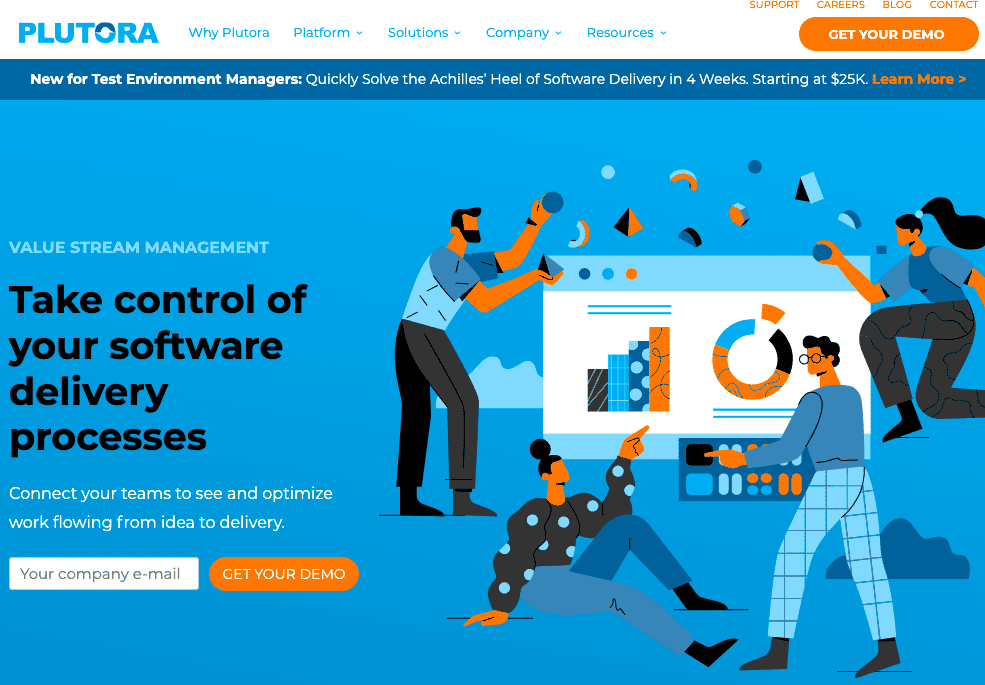
Plutora gives you the power to optimise your workflow from idea all the way through to delivery. Plus, you can gain even more control over the entire lifecycle with continuous compliance that ensures your DevOps teams are never slowed down.
Plutora can integrate with your existing development stack for easy collaboration and increased visibility. Plus, the tool gives you access to analytics that can help you understand what’s working and what’s not.
– It’s an all-encompassing value stream management platform.
– Accelerate your DevOps.
– It promises a 99.5% uptime.
12. Jenkins
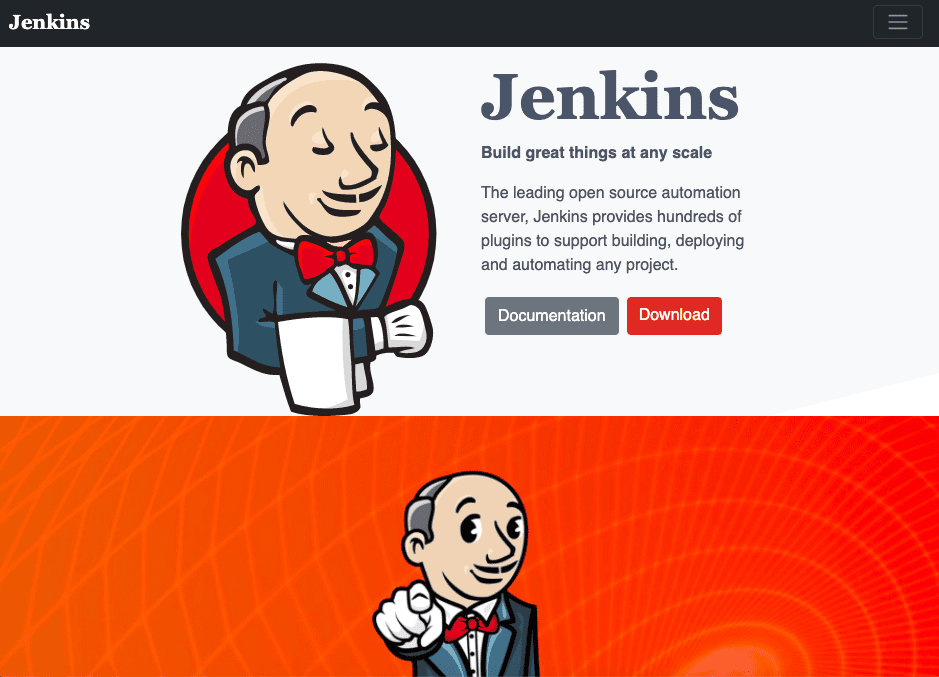
Jenkins is an open source automation server that provides hundreds of plugins to support the building, deploying, and automating of any project.
It’s a very popular tool and it’s community driven too! Anyone and everyone is invited to contribute things like code, documentation, localisation, and more.
There are almost 2,000 community-contributed tools, meaning Jenkins can integrate with virtually anything!
– Easy to install and configure.
– Integrates with virtually any tool.
– It’s extensive and community-driven.
13. Digital.ai
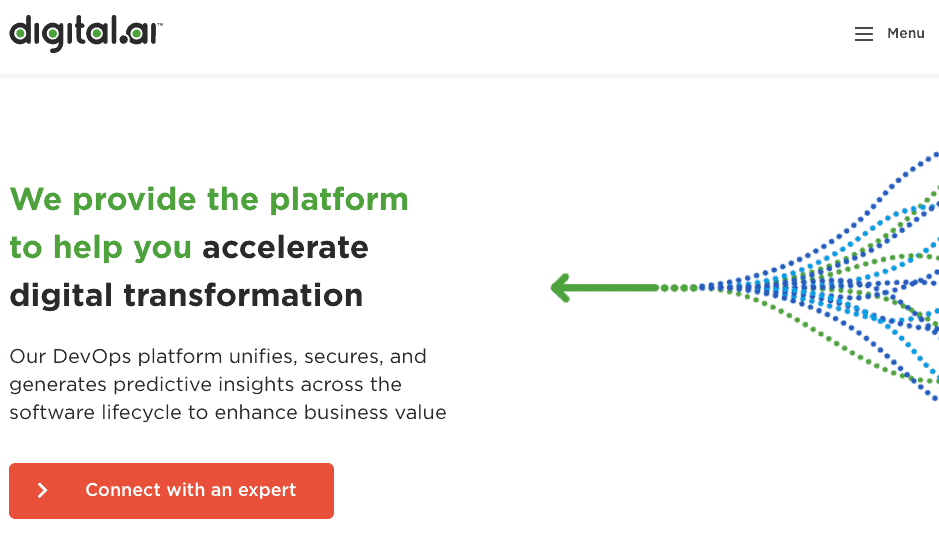
Digital.ai allows teams to automate and orchestrate release pipelines at any scale, giving organisations the power to continually deliver their best software.
With Digital.ai, you can ensure the right tasks happen at the right time by taking advantage of their planning and automation tools. Plus, you can use these tools to model delivery processes in a way that maximises reliability and reusability.
– Accelerate your entire delivery process.
– Utilise automation to increase reliability.
– Deliver releases at scale.
14. StackStorm
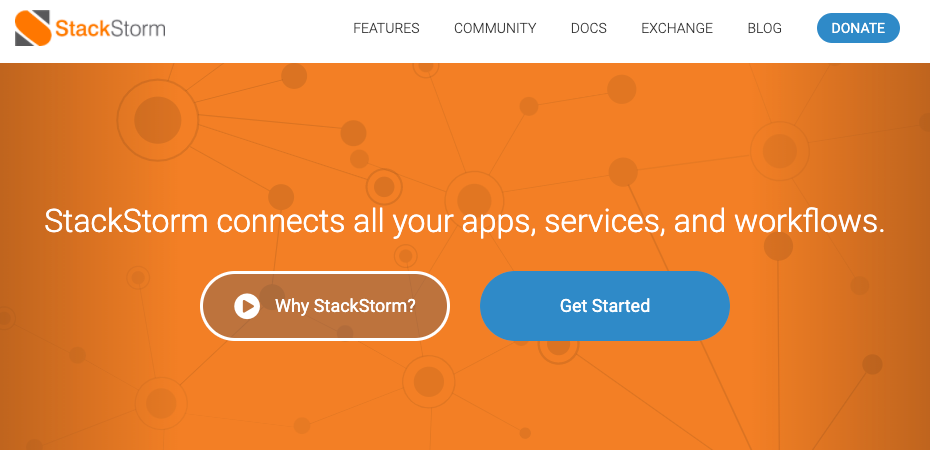
StackStorm is an open source release management tool that connects all of your apps, services, and workflows.
Similar to Ansible, it offers advanced automation capabilities so you can automate workflows and execute relevant actions. Plus, StackStorm works to very simple if/then rules so it’s easy to automate your DevOps.
StackStorm can integrate with your existing infrastructure, ensure your security response is always consistent, and it can also facilitate better collaboration between your teams with ChatOps optimisation.
– It’s easy to use.
– Facilitate better collaboration.
– Trusted by huge enterprise companies.
15. ProgressChef
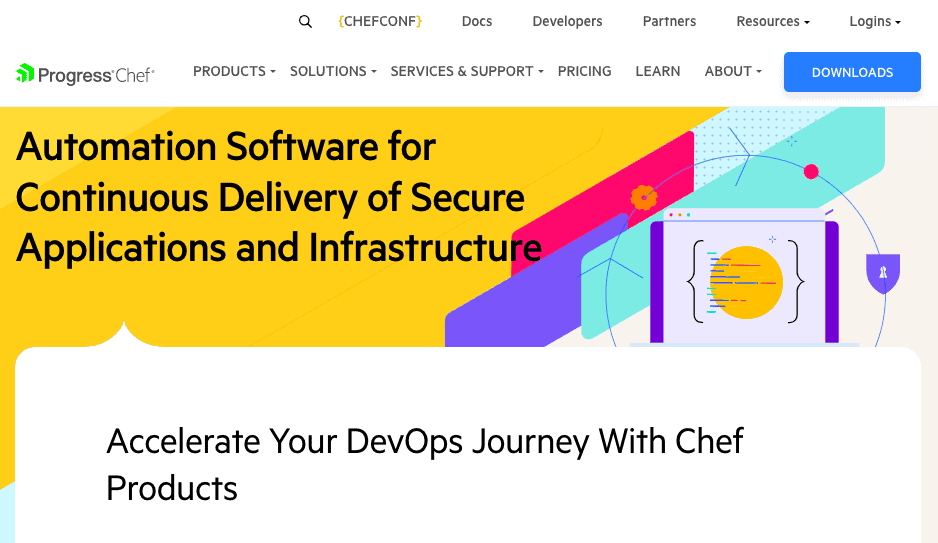
ProgressChef (often just referred to as “Chef”) is a DevOps automation and configuration management tool. It allows users to automate tasks across a number of servers, and also to deploy and manage software releases.
The full suite of products includes compliance software, infrastructure management, and an app delivery tool that helps to ensure successful outcomes at scale.
According to the website, their full suite helps DevOps teams to deliver change quickly, repeatedly, and securely.
– Access a full suite of technologies.
– Accelerate your DevOps journey.
– Move fast and stay secure.
16. BuildMaster
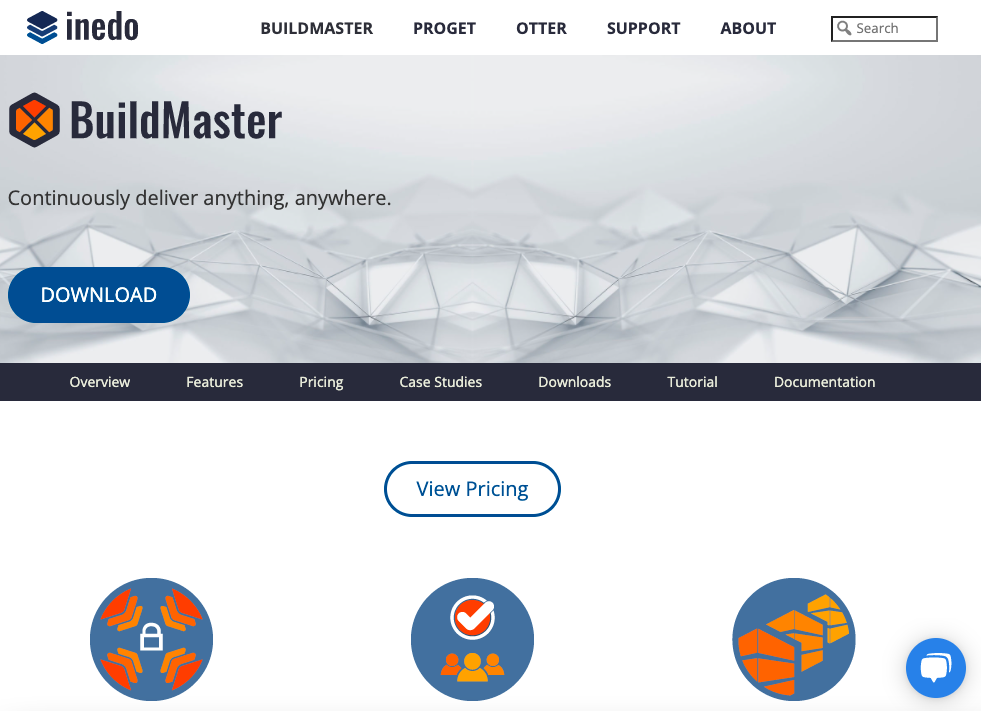
BuildMaster is an end-to-end CI/CD (continuous integration and continuous delivery) solution that allows organisations to release software reliably, to any environment, at whatever pace the business demands.
With BuildMaster, you can start small before scaling to thousands of servers and the cloud. Plus, the tool allows you to optimise every step of your release management process and maintain security and compliance through user approvals and auditable documentation.
Pricing for enterprise packages starts from $2,995 per year for up to 10 users, and included with that is access to their support engineers and also help with any debugging challenges you may face.
– It’s an end-to-end solution.
– It’s easy to scale.
– It can integrate with a variety of platforms, even legacy applications.
17. LaunchDarkly
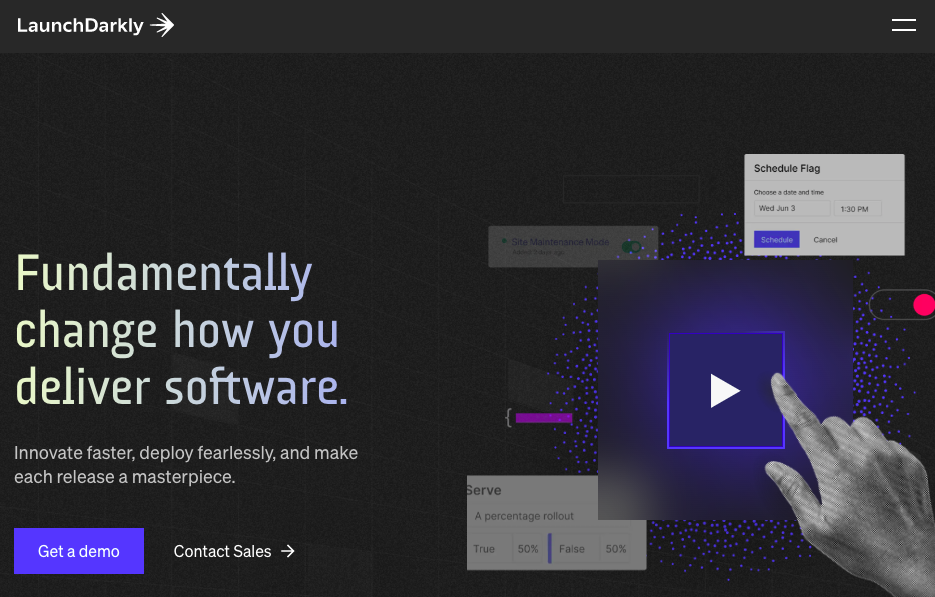
LaunchDarkly allows businesses to deploy new releases faster with a scalable feature flag & toggle management tool. You can enable modern and continuous delivery across environments while retaining complete control of customer experience features, to ensure each release is a masterpiece.
LaunchDarkly also facilitates the automation of DevOps workflows, so you can streamline your release process while ensuring compliance.
– Deploy faster and with more confidence.
– Track risks and make data-driven decisions.
– Full feature flag lifecycle management.
18. Spinnaker
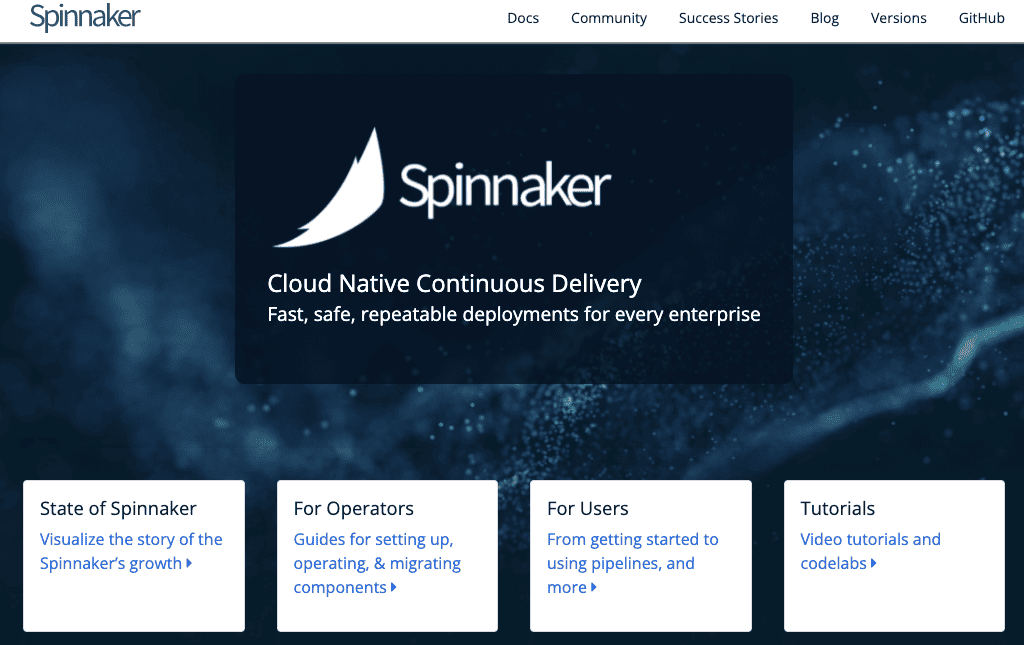
Spinnaker is an open source, cloud native, continuous delivery platform that helps organisations to release software changes with high speed and confidence.
Developed by Netflix and extended by Google, Spinnaker boasts some huge clients including Airbnb, SAP, and Target.
This tool has been well and truly tested in production over millions of deployments, and offers integration with all major cloud providers.
– Built in deployment best practices.
– Deploy across multiple cloud providers.
– It’s tried and tested.
Final thoughts
And there you have it! A list of 18 of the best release management tools for your software in 2024. Of course, release management is only one plate among many that you spin.
If you’re looking for an all encompassing project management platform that you can adjust to suit the specific needs of your team, check out Project.co.


